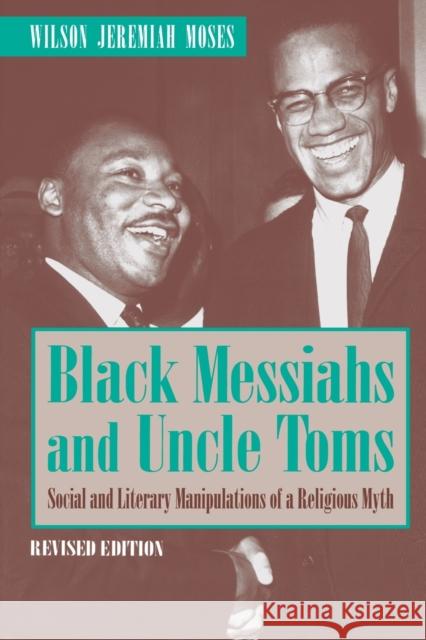Black Messiahs and Uncle Toms: Social and Literary Manipulations of a Religious Myth. Revised Edition » książka
Black Messiahs and Uncle Toms: Social and Literary Manipulations of a Religious Myth. Revised Edition
ISBN-13: 9780271009339 / Angielski / Miękka / 1993 / 294 str.
Black Messiahs and Uncle Toms: Social and Literary Manipulations of a Religious Myth. Revised Edition
ISBN-13: 9780271009339 / Angielski / Miękka / 1993 / 294 str.
(netto: 147,82 VAT: 5%)
Najniższa cena z 30 dni: 154,26
ok. 30 dni roboczych
Dostawa w 2026 r.
Darmowa dostawa!
"Martin Luther King is dead and the millenarian integrationalism that he symbolized sleeps with him," but messianic Christian rhetoric still characterizes black oratory both from the pulpit and on the hustings. Dead, too, are the chief American prophets of Pan-Islam, but the Ethiopian Hebrews and Moorish Science Temple are still active. "As black messianic myths die out," this book argues, "new ones spring up to take their places."Dr. Moses views black messianism as "a powerful and, in many respects, a beautiful myth, permeating the thinking of both white and black Americans since the late 18th century." But, he points out, black messianism was evident as early as 1788 in the writings of "Othello," or 1791, when Benjamin Banneker wrote to Thomas Jefferson of the Negro's divine right to share the new nation's "peculiar blessing of the heaven." The author carefully defines the concept of messianism, and considers "redemptive mission" as a key attribute of the conception--one with which Harriet Beecher Stowe endowed Uncle Tom (despite activists' mistaken notion of him as servile).The mythic black hero as messiah is a pervasive theme in literary and social expressions as disparate as the writings of Booker T. Washington, Marcus Garvey, W.E.B. Dubois, and Ralph Ellison, and the cults that developed around Joe Louis, Malcolm X, and others. Following the methodology used by Henry Nash Smith in Virgin Land: The American West as Symbol and Myth, Dr. Moses presents a "new angle of vision on many of the issues of black messianism and on the leading figures in the movement." The author concludes that--despite the frequent excesses and even absurdities of black messianism--the American traditions of "evangelical reform, perfectionism, and the social gospel" offer more promise than today's widespread "narcissistic anarchism."Reviewers commented that " Dr. Moses'] analysis is as probing as anything " and that the book "will stir controversy as well as praise by other scholars in the field."











